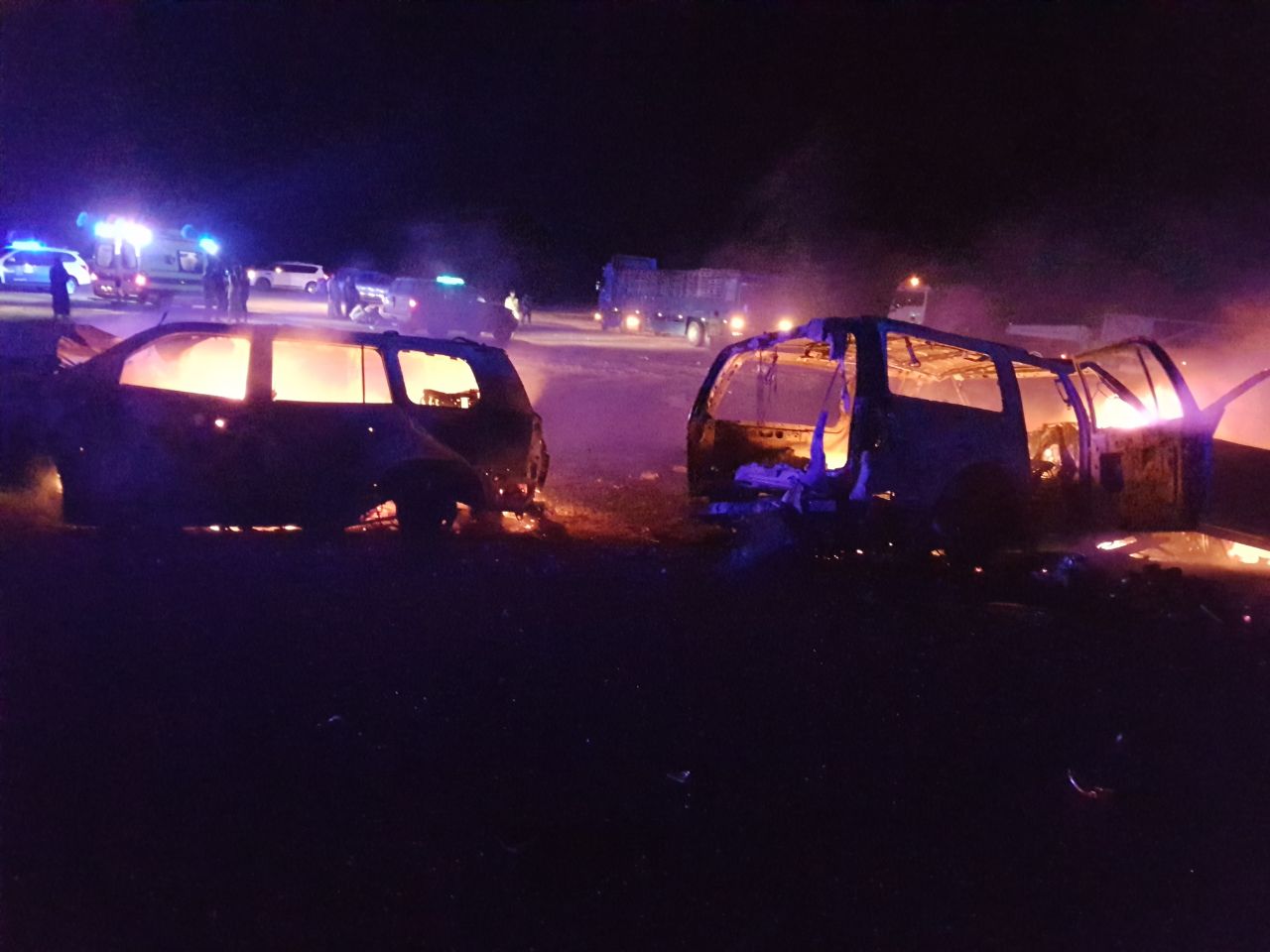
Latest: Safety checkpoints set up on danger road in Oman
Muscat: An overtaking error caused a head-on fireball crash that killed three people and injured 12 others on Tuesday night, according to police.
Three families and victims of three different nationalities were involved in the crash, including an Emirati mother and son, as well as a Saudi Arabian woman, who lost their lives, according to reports by the Royal Oman Police in Qarn Al Alm.
Get your essential daily briefing delivered direct to your email inbox with our e-newsletter
“Two vehicles were headed towards Salalah and one was headed back. There were two Omanis in the first car, nine Saudis in the second car, and an Emirati mother and her five children in the third car.”
The latest fatal accident on the road to Salalah has prompted road safety campaigners to urge visitors to slow down on our roads, and police to issue guidance on safe driving.
“According to our investigation, the Emirati car overtook a truck and was taken by surprise from the oncoming Saudi car, and they collided head on, a ROP spokesman added.
“The Omani car was 200 metres behind and so they were not injured badly,” the police officer at Qarn Al Alam said. The officer said the report came in at 8pm, but luckily, patrol vehicles were in the area and were on the scene immediately.
“Patrol and PACDA, because of the fires, were in the area at 8pm. The investigation showed that the third car, which was headed South-North collided with the other vehicle headed in the opposite direction. The Saudi Arabian lady, who died was the grandmother of the driver, and the other car was driven by a mother and had her five children in the car,” the officer clarified.
Drivers not familiar with Oman’s roads or its residents’ driving habits should slow down and use common sense, according to the head of the Sultanate’s road safety association.
Ali Al Barwani, chief executive officer, Oman Road Safety Association, stated that there are many reasons as to why accidents take place on this road, but we can’t place all the blame on the road itself.
“We are sorry for the family members, who died on the road, and all of us are sad to share this tragic news. We always say that during this season—Khareef—many people come from outside of Oman. A lot of the time, it is their first time driving on our roads.
“You should always choose the right time to drive. If it’s already dark, most of the road doesn’t even have street lighting. The road is not wide enough, so don’t speed and don’t underestimate (other drivers). Full head-on collisions happen, but we can’t blame the road when everybody rushes to reach their destination,” Al Bawrani said.
“Both cars belong to another country. Remember, be careful in unknown territory. I insist that people should avoid roads they are not familiar with when it comes to long distance driving. They should rest, at least every two hours, do some stretches, and get back in the car. Visitors should slow down while driving on our roads.”
Nizwa Hospital confirmed receiving patients from Tuesday night’s crash.
“The first case came in at around 11:30 at night. We received 12 of the injured and two dead bodies,” the hospital stated.
According to the Public Relations Officer at the hospital, most of the injured were children, of which the oldest was around 17 years and youngest was about four years old. The children suffered “green and yellow injuries,” which refers to minor and non-life threatening serious injuries during mass casualties.
“The children are all in a stable condition, green and yellow. Bodies of both the Emirati victims have been transported back to their country,” the PR officer stated.
“The problem is that road has a desert terrain, and there are long roads between stations. We don’t have services on the road, but ROP and other authorities do their job. There are some things that don’t involve the police and we can’t control; its human behaviour to make mistakes. There are radars, but you can’t expect them to go slow all the time. We have first time drivers down that road and tourists who aren’t familiar with such driving. People need to be well rested, better prepared and always have a substitute driver. People shouldn’t drive when feeling sleepy,” a source at the ROP said.
Since the beginning of the Khareef (monsoon) season in May, eight fatalities and countless injuries have occurred on the Salalah road.